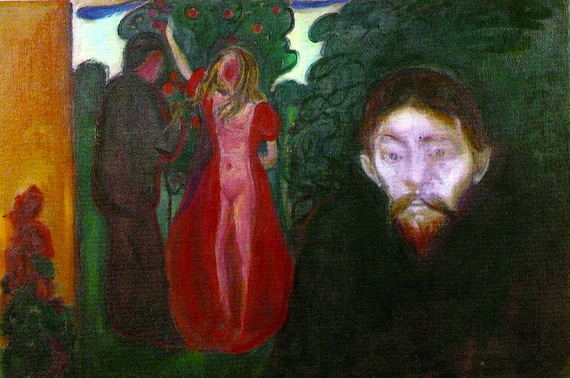
1.
I am a jealous person — jealous of the vacations I see on Instagram, of my sister’s perfect hair, of the latte the man next to me just ordered — but it took me a long time to realize I was a jealous reader and writer. In fact, I didn’t know that literature was something I could be envious of until I read Marina Keegan’s The Opposite of Loneliness. There, in the last essay of the collection, a piece titled “Song for the Special,” Keegan addresses her “unthinkable jealousies.” “Why didn’t I think to rewrite Mrs. Dalloway? I should have thought to chronicle a schizophrenic ballerina,” she writes. “It’s inexcusable.”

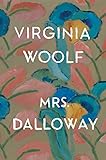
 Like Keegan, I was angry that Michael Cunningham thought to rewrite Mrs. Dalloway first — The Hours should have been mine! Come to think of it, “Song for the Special” should have been mine! And it spread from there.
Like Keegan, I was angry that Michael Cunningham thought to rewrite Mrs. Dalloway first — The Hours should have been mine! Come to think of it, “Song for the Special” should have been mine! And it spread from there.
I’m jealous of ridiculous things: of Little Women, and of the original Mrs. Dalloway, if it comes down to it, and of Alice in Wonderland and of Walden. I’m jealous of Atonement and of Housekeeping. I’m jealous of every writer who’s written a feature for The Atlantic and of every Paris memoir that’s ever been published, especially the ones that involve a lot of food. I am full of unthinkable jealousies.
When I described this to a friend he corrected me. “You’re not jealous,” he said. “You’re envious. You want to have written these books, sure, but it’s not like you feel you rightfully should have.”
He’s wrong, though. I do.

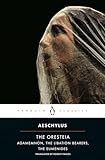
 My strongest jealousies have a certain logic to them. The books I’m most jealous of aren’t necessarily the ones I most admire. I love The Brothers Karamazov and I love the Oresteia, but I can’t say either inspires jealousy or envy or anything else, really, aside from a kind of awe. They exist outside me, and I can’t conceive of any alternate reality in which I might have written them. But Meghan Daum’s Life Would Be Perfect if I Lived in That House? I’m jealous of that, just as I’m jealous of her first collection, My Misspent Youth. Truthfully, I’m jealous of most literary essayists, especially those who write about their homes or homely yearnings. Why? The through line is just me, that I want to have written their work. And sometimes, late at night, I allow myself to think that maybe I could have, if only they hadn’t gotten there first.
My strongest jealousies have a certain logic to them. The books I’m most jealous of aren’t necessarily the ones I most admire. I love The Brothers Karamazov and I love the Oresteia, but I can’t say either inspires jealousy or envy or anything else, really, aside from a kind of awe. They exist outside me, and I can’t conceive of any alternate reality in which I might have written them. But Meghan Daum’s Life Would Be Perfect if I Lived in That House? I’m jealous of that, just as I’m jealous of her first collection, My Misspent Youth. Truthfully, I’m jealous of most literary essayists, especially those who write about their homes or homely yearnings. Why? The through line is just me, that I want to have written their work. And sometimes, late at night, I allow myself to think that maybe I could have, if only they hadn’t gotten there first.
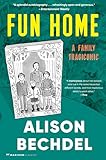
 As an earnest undergraduate, I used to write obsessively about houses and their connection to identity; my scraped-together thesis covered A Room of One’s Own and Fun Home, two more books I envy. Life Would Be Perfect tackles the same questions I struggled to answer with more grace, insight, and humor then I could have ever hoped to muster at 22, if ever. When I found Daum’s memoir, too late to use it for my paper, I was unimaginably jealous. I could have written that book, or at least one very like it! All I needed was more time (and maybe an MFA)! But Daum had beaten me to it, and my handful of essays looked punier than ever. The problem wasn’t really that someone had written about refinished floors with the same zeal I felt, of course. My jealousy was largely just a cover for my terror. How could I ever write something original when someone had already explored, written, and published all of my ideas and interests?
As an earnest undergraduate, I used to write obsessively about houses and their connection to identity; my scraped-together thesis covered A Room of One’s Own and Fun Home, two more books I envy. Life Would Be Perfect tackles the same questions I struggled to answer with more grace, insight, and humor then I could have ever hoped to muster at 22, if ever. When I found Daum’s memoir, too late to use it for my paper, I was unimaginably jealous. I could have written that book, or at least one very like it! All I needed was more time (and maybe an MFA)! But Daum had beaten me to it, and my handful of essays looked punier than ever. The problem wasn’t really that someone had written about refinished floors with the same zeal I felt, of course. My jealousy was largely just a cover for my terror. How could I ever write something original when someone had already explored, written, and published all of my ideas and interests?
The grand irony is that Life Would Be Perfect if I Lived in That House is very much a book about envy. It’s a memoir about obsession, insecurity, and identity creation, but the source of all this trouble is “a shabby yet elegant prewar apartment in Manhattan,” not a memoir published by a talented stranger. Daum’s admission that she “sometimes found it difficult to read the Sunday paper without writhing in envy” at the luxury real estate listings and that simply “walking by certain edifices…without feeling the ache of rejection” became impossible works pretty well as a description of literary jealousy. Just replace “luxury real estate listings” with “bestseller list” and “edifices” with “the shelves of the local Barnes & Noble.”
Life Would Be Perfect charts a struggle with identity and jealousy, but here the relationship between the two isn’t necessarily destructive. Daum’s real estate envy drives her to move from Manhattan to Nebraska to L.A., creating a livable and even enjoyable life as she goes. Her jealousy ultimately incites action, not paralysis. She is not erased. The envied apartment and life are still attainable, and Daum goes after them. This time there’s a way out of the seemingly infinite jealousy loop, and she takes it.
 Not all jealousy is so easily converted into action, however. Like any explosive material, it has its dangers as well as its uses, as art and history tell us again and again. Why did Cain kill Abel? Why did Medea murder not only Jason’s new bride but her own children? And why does Antonino Salieri, a passionate but mediocre Austrian court composer and the focus of Miloš Forman’s stylish film Amadeus, break down once he recognizes the overwhelming talent of a young Wolfgang Amadeus Mozart?
Not all jealousy is so easily converted into action, however. Like any explosive material, it has its dangers as well as its uses, as art and history tell us again and again. Why did Cain kill Abel? Why did Medea murder not only Jason’s new bride but her own children? And why does Antonino Salieri, a passionate but mediocre Austrian court composer and the focus of Miloš Forman’s stylish film Amadeus, break down once he recognizes the overwhelming talent of a young Wolfgang Amadeus Mozart?
“From now on we are enemies, You and I,” Salieri spits, not at Mozart but at a crucifix, in a scene at the heart of the film. He isn’t angry at the prodigy; here it’s God who’s the enemy. “You chose for Your instrument a boastful, lustful, smutty, infantile boy, and gave me for award only the ability to recognize the incarnation,” Salieri complains. “Because You are unjust, unfair, unkind, I will block You, I swear it.” And he does, eventually killing Mozart with sheer overwork and nervous exhaustion. God gave Salieri “only the ability to recognize the incarnation” of ability, the desire for brilliance but none of the brilliance itself. What could be worse? What could be more relatable for a reader and aspiring writer?
2.

 In “An Ode to Envy,” a TED Talk, senior editor at the New York Review of Books and remarkable essayist Parul Sehgal points out that without jealousy there wouldn’t be much literature to speak of. No William Shakespeare, no Anna Karenina, no Brothers Karamazov, no Madame Bovary, no Marcel Proust. One of the wonders of fiction, she argues, is its ability to accurately capture and reflect our jealousy. The power and dark appeal of envy, so often blurred in real life, are fully revealed in our greatest novels. Sehgal adds that jealousy itself is creative work. “When we feel jealous we tell ourselves a story,” she explains. “We tell ourselves a story about other people’s lives, and these stories make us feel terrible because they’re designed to make us feel terrible. As the teller of the tale and the audience we know just what details to include…Jealousy makes us all amateur novelists.”
In “An Ode to Envy,” a TED Talk, senior editor at the New York Review of Books and remarkable essayist Parul Sehgal points out that without jealousy there wouldn’t be much literature to speak of. No William Shakespeare, no Anna Karenina, no Brothers Karamazov, no Madame Bovary, no Marcel Proust. One of the wonders of fiction, she argues, is its ability to accurately capture and reflect our jealousy. The power and dark appeal of envy, so often blurred in real life, are fully revealed in our greatest novels. Sehgal adds that jealousy itself is creative work. “When we feel jealous we tell ourselves a story,” she explains. “We tell ourselves a story about other people’s lives, and these stories make us feel terrible because they’re designed to make us feel terrible. As the teller of the tale and the audience we know just what details to include…Jealousy makes us all amateur novelists.”
But what about those of us who deal in nonfiction? What does essayistic jealousy look like? Is it possible that our jealousy is simultaneously less creative and more painful then its fictional counterpart? Is it possible that it’s less jealousy and more insecurity? Less Sehgal and more Salieri?
When we say, “all of my ideas have already been had,” what we’re expressing isn’t jealousy, it’s doubt in our own creativity, in our worthiness to write about anything at all. Never mind that originality in the broadest sense is hardly possible, and never mind that the beauty of most good essayistic writing lies in the writer’s ability to both make the specific feel universal and, paradoxically, turn the commonplace into something momentarily extraordinary. When we say “I should have written that,” what we mean is “How unjust, unfair, unkind that you were faster, smarter, and more fortunate than I. How terrible that I have nothing more to offer.” We’re not amateur novelists at all, just whiners.

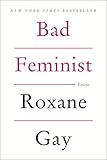 So how to deal with our unthinkable jealousies? What to do with my frustration that I’ll never be able to claim The Empathy Exams or Bad Feminist or Bluets as my own?
So how to deal with our unthinkable jealousies? What to do with my frustration that I’ll never be able to claim The Empathy Exams or Bad Feminist or Bluets as my own?
Sehgal has a suggestion, drawn from “The Adventure of the Six Napoleons,” a Sherlock Holmes story in which the bumbling detective Lestrade finally allows himself to admire Holmes’s incredible abilities rather than resenting his genius. “What if jealousy really is just a matter of geometry, just a matter of where we allow ourselves to stand?” Sehgal wonders. “What if we don’t have to resent somebody’s excellence, [but instead] we can align ourselves with it?”
Easier said then done, sure, but as an idealistic goal it’s better than nothing, and certainly far better than Salieri’s murderous vision. It works particularly well when one is wrestling with awe in the face of true talent and real brilliance. It works considerably less well if one is frustrated by more possible comparisons, by mere issues of timing and semi-plausible “if onlys.”
For this second, more practical problem of jealousy, Meghan Daum again offers a solution. In the foreword to the 2015 edition of My Misspent Youth, the essay collection that made her career, Daum tells a story about the title essay. Immediately after finishing a first draft “in a two-week fury,” Daum came across a strikingly similar essay by Vince Passaro in Harper’s. “Reading his story,” she writes, “I felt even more certain I was on to something…I was also certain that no one would ever publish my essay now because it had effectively already been published.”
It is at this point that many writers’ basest instincts would kick in, but Daum gets to work. There’s no sense of frustration or injustice, no hint of insecurity. She isn’t jealous; she is a writer. So, she “rewrote [the essay] several times,” changing the focus to something more unique to her experience, separating it from the more general essay that preceded it. An easy solution? No, but a simple one.
Daum’s approach is infinitely more practical than my own patented sulking, but I don’t think it will ever totally replace it. Four million Google results on writerly jealousy say this is a plague without cure, though it does have the benefit of giving us all something to commiserate about. So long as we’re human and flawed, we’ll be jealous. So long as there are writers in every coffee shop and on the staff of every magazine and behind the cover of every one of the thousands of fresh books printed each year, there will be people for us to envy. Just, please, nobody else write about their homes for a while, okay? I think it’s my turn.
Image Credit: Wikipedia.









